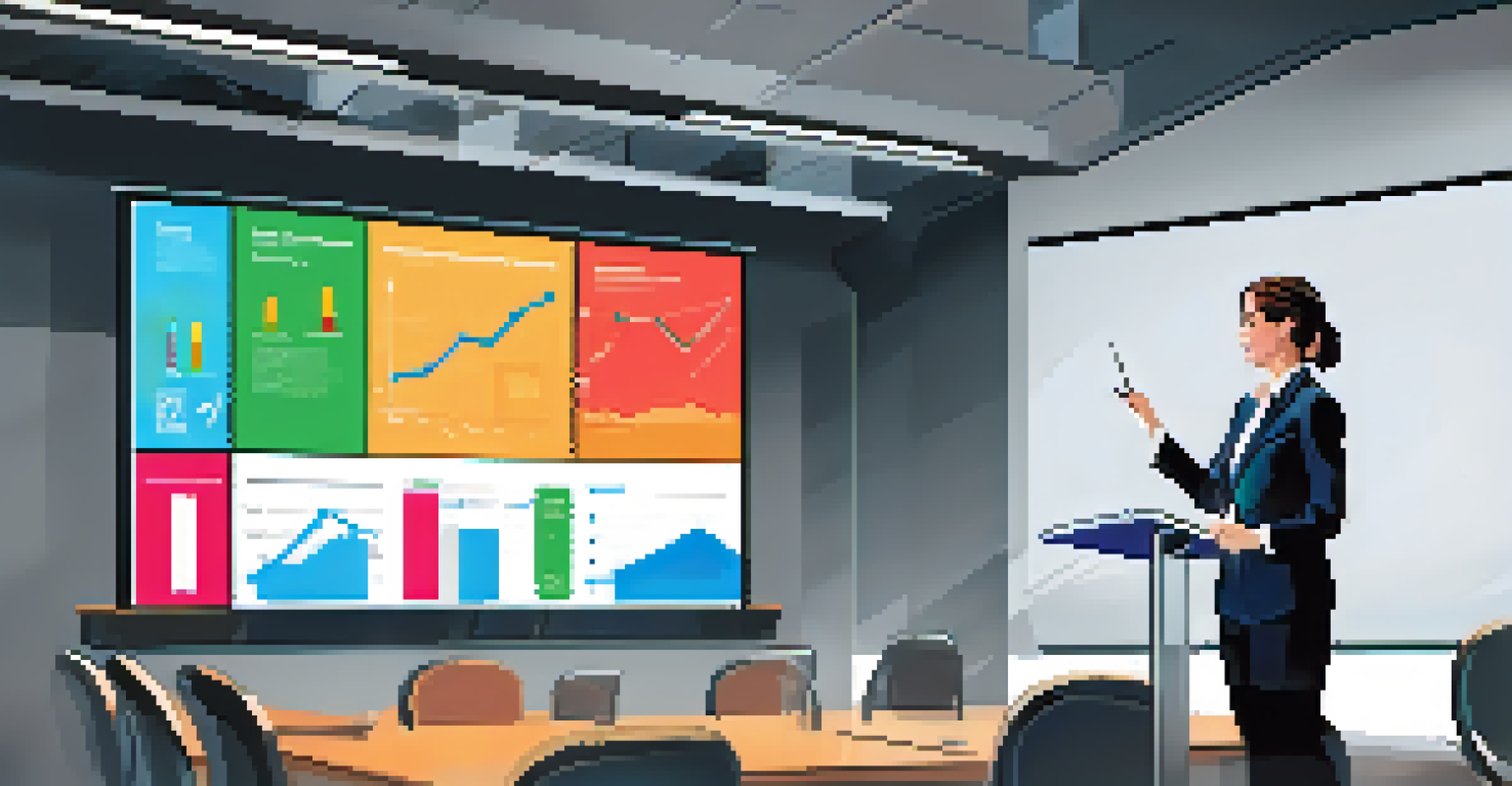Top Skills to Develop for a Versatile Career in Any Industry

Communication: The Cornerstone of All Industries
Effective communication is vital in any professional environment. It involves not just speaking clearly, but also listening and understanding others' perspectives. Whether you’re collaborating with a team or presenting to clients, strong communication skills can make or break your success.
The single biggest problem in communication is the illusion that it has taken place.
Imagine trying to build a bridge without a blueprint; that’s what working without clear communication feels like. By honing your ability to articulate ideas and feedback, you foster a collaborative atmosphere, making it easier to resolve conflicts and drive projects forward. This skill enhances relationships and promotes a positive work culture.
Moreover, mastering various forms of communication—verbal, written, and non-verbal—can expand your influence. Tailoring your message based on your audience ensures that your ideas resonate, making you a more effective leader and team member in any industry.
Adaptability: Thriving in Change and Uncertainty
In today’s fast-paced world, adaptability is a crucial skill that employers seek. Change is inevitable, whether it’s new technology, market demands, or organizational shifts. Being adaptable means you can navigate these changes with ease and even turn challenges into opportunities.

Think of adaptability like a chameleon; it’s about adjusting to your environment. When you embrace change and remain flexible, you’re better equipped to learn new skills and pivot when necessary. This mindset not only helps you stay relevant but also positions you as a resourceful employee.
Communication is Key to Success
Effective communication fosters collaboration and drives project success in any professional environment.
Cultivating adaptability involves a willingness to step out of your comfort zone. By challenging yourself to take on new tasks or roles, you build resilience and confidence, making you an attractive candidate in any job market.
Critical Thinking: Making Informed Decisions
Critical thinking is the ability to analyze information objectively and make reasoned judgments. In a world overflowing with data, being able to discern what’s important is invaluable. This skill enables you to solve problems effectively and make informed decisions that benefit your organization.
Creativity is intelligence having fun.
Consider critical thinking as your mental toolkit; it helps you break down complex issues into manageable parts. By evaluating evidence and considering multiple viewpoints, you can arrive at solutions that are not only effective but also innovative. This is especially important in industries that require strategic planning.
Furthermore, fostering a habit of questioning assumptions and exploring alternatives can lead to better outcomes. As you refine your critical thinking skills, you become more capable of tackling challenges head-on, making you an indispensable asset in any career.
Teamwork: Collaborating for Collective Success
Teamwork is essential in today’s interconnected work environments. The ability to collaborate effectively with others can lead to more creative solutions and successful project outcomes. Building strong relationships with colleagues fosters a sense of unity and shared purpose.
Just like a sports team relies on each player’s strengths, effective teamwork involves recognizing and leveraging the unique skills of each member. This collaborative spirit not only enhances productivity but also encourages personal growth as you learn from your peers. It’s about creating a supportive atmosphere where everyone can thrive.
Adaptability Fuels Career Growth
Being adaptable allows you to navigate change and turn challenges into opportunities, making you a valuable employee.
Moreover, being a good team player means being open to feedback and willing to compromise. Embracing diverse perspectives and valuing contributions fosters innovation and drives success, ensuring that your team achieves its goals together.
Creativity: Thinking Outside the Box
Creativity isn’t just for artists; it’s a vital skill in every industry. The ability to think outside the box allows you to come up with innovative solutions to problems and to approach challenges from new angles. This skill is invaluable in a world that constantly demands fresh ideas.
Imagine creativity as a muscle that needs regular exercise. By engaging in brainstorming sessions, exploring new hobbies, or challenging conventional approaches, you strengthen your creative abilities. This not only enhances your personal development but also positions you as a visionary in your field.
Additionally, fostering a creative mindset encourages experimentation and risk-taking. When you’re open to trying new things, you’re more likely to discover breakthrough ideas that can propel your organization forward.
Emotional Intelligence: Understanding Yourself and Others
Emotional intelligence (EI) is the ability to recognize and manage your emotions while also understanding the emotions of others. In any workplace, EI plays a crucial role in building relationships and navigating social complexities. It’s about being aware of how emotions influence behavior and decision-making.
Think of emotional intelligence as your internal compass; it guides your interactions and helps you respond appropriately to various situations. By developing EI, you can enhance your leadership skills and create a more harmonious work environment. This is especially important in roles that involve teamwork or client interactions.
Networking Boosts Career Opportunities
Building meaningful professional relationships through networking can open doors to new opportunities and collaborations.
Moreover, emotional intelligence can improve your resilience in the face of stress and conflict. By managing your emotions effectively, you can maintain a positive outlook, inspire others, and foster a culture of empathy and support within your organization.
Time Management: Maximizing Productivity and Efficiency
Time management is the art of prioritizing tasks and managing your schedule effectively. In any career, mastering this skill can lead to increased productivity and reduced stress. It involves setting realistic goals and creating actionable plans to achieve them.
Think of time management as your personal roadmap; it helps you navigate through your daily tasks efficiently. By breaking down larger projects into smaller, manageable steps, you can tackle them without feeling overwhelmed. This approach not only makes work more manageable but also leads to greater job satisfaction.

Additionally, good time management enables you to maintain a healthy work-life balance. By allocating time wisely, you can ensure that you meet deadlines without sacrificing your personal life, making you a more well-rounded individual in any industry.
Networking: Building Relationships for Career Growth
Networking is about creating and nurturing professional relationships that can enhance your career. In every industry, having a strong network can open doors to new opportunities, collaborations, and mentorship. It’s not just about collecting contacts; it’s about building meaningful connections.
Imagine your network as a web; the more connections you have, the stronger and more resilient it becomes. Engaging with others in your field can lead to valuable insights and support, helping you navigate your career path more effectively. Attending industry events and joining professional organizations are great ways to expand your network.
Moreover, effective networking is a two-way street. By offering assistance and sharing your expertise with others, you build a reputation as a valuable resource. This reciprocity not only strengthens your relationships but also enhances your professional credibility.